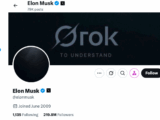
The California Raisins also recorded “I Heard It Through the Grapevine”
The Big Picture –
By Glynn Wilson –
CATOCTIN MOUNTAIN, Md. — The first day of autumn, 2021, started out with a pounding rain knocking the acorns out of the trees, landing on the media camper van roof with a loud pop, along with cooler temperatures that caused me to dig the portable heater out from under the bed.
I gave up on sleeping late, got up to make the coffee and started scanning the daily newspapers online and comparing that to what people were sharing on Facebook, the only social media platform even worth talking about. I consider Twitter, Tik Tok and the rest complete wastes of time.
But as time goes by, and the meth head programmers and hackers continue to tweak the Facebook algorithm, I am finding it even more useless and beyond hope of fixing than ever.
In one of those epiphanies I am not famous for, it occurred to me that the perfect theme song for Facebook should be “I Heard It Through the Grapevine.”
It’s a song written by Norman Whitfield and Barrett Strong for Motown Records in 1966, first recording by Gladys Knight & the Pips. Marvin Gaye also had a hit with it, but I remember it most for the version by John Fogerty and Creedence Clearwater Revival.
To hear something through the grapevine or on the grapevine is to learn about something via an informal source or hearsay, from another person; it may refer to an overheard conversation or anonymous sources of information, according to Wikipedia.
You see where I’m going with this, right?
One explanation says that the phrase is based on the appearance of the telegraph wire installed across the U.S. during the 19th century, strung together by telegraph poles, which resembled the strings used to train grapevines. Rumors were frequently spread using the telegraph system during the American Civil War.
The New York Public Library contends that the phrase derives from the infamous Grapevine Tavern in New York City’s Greenwich Village. During the Civil War it “…was a popular hangout of Union officers and Confederate spies… It was the ideal place to get news and information, or in the case of spies and politicians, the ideal place to spread rumors and gossip, leading to the popular phrase ‘heard it through the grapevine'”.
In his autobiography Up From Slavery, Booker T. Washington says that slaves in the South kept up-to-date on current events by “what was termed the ‘grape-vine’ telegraph”.
“Often the slaves got knowledge of the results of great battles before the white people received it. This news was usually received from the colored man who was sent to the post office for the mail… The man who was sent to the post office would linger about the place long enough to get the drift of the conversation from the group of white people who naturally congregated there, after receiving their mail, to discuss the latest news. The mail carrier on his way back to our master’s house would as naturally retell the news that he had secured among the slaves, and in this way they often heard of important events before the white people at the ‘big house,’ as the master’s house was called.”
Of course the obvious problem with a grapevine telegraph, rumor mill or social media platform is that you are as likely to be misinformed as to find out what’s really going on.
Remember the Telephone game, where you whisper a phrase and then it gets passed around the room? What comes out in the end is rarely close to the original phrase. When a story is retold, it is often exaggerated or wrong. The same thing happens on cable news. What gets reported is mostly speculation filled with biased opinions.
FB Messenger Grapevine
So when I cranked up Facebook this morning, there was a message from a woman who for some reason decided to tell me this in FB Messenger. She heard it from her son-in-law, she said, who is a “conspiracy nut” and who most likely saw it on FB.
“I just heard that the Magats now believe that the (coronavirus) vaccine is being hidden in salad dressing so they’re not eating Ranch on everything now. Lol. Maybe we should start a rumor about how Joe Biden is putting the vaccine in chemtrails and the only way to protect yourself from inhaling it is by wearing a mask.”
“I heard it through the FB grapevine…”
Then there was a story in The Washington Post about people posting videos of themselves breathing in hydrogen peroxide through a nebulizer.
“Coronavirus misinformation has proliferated on social media throughout the pandemic even as Facebook, YouTube and Twitter have all taken steps to (try to) stop it. It includes unproven claims that hydroxychloroquine, an antimalarial drug, or ivermectin, which is used to kill parasites in animals and humans, could knock out the virus. Some experts, including Surgeon General Vivek H. Murthy, contend that such misinformation was partly responsible for Americans refusing vaccination, leading to additional coronavirus cases and deaths.”
“I heard it through the FB grapevine…”
Then there was a story in The New York Times under the headline: No More Apologies: Inside Facebook’s Push to Defend Its Image, which was also written up in the morning email of the Columbia Journalism Review: Facebook goes on the offensive against critical reporting.
IN THE AFTERMATH of the 2016 presidential election, and facing widespread criticism that it had helped to destabilize the process by enabling Russian trolls and spreading disinformation, Facebook seemed to strike an apologetic tone. Mark Zuckerberg, Facebook’s co-founder and chief executive, occasionally seemed defensive in his subsequent testimony before Congress, but the general sense was that he and the company were sorry for playing a role in those events, and were trying to do better.
“More recently, however, Facebook appears to be taking a much more aggressive approach to criticism, if the company’s response to recent reporting is any indication.
“After a series of Wall Street Journal articles last week revealed how Facebook has a special program that allows celebrities to get around the platform’s rules of behavior, and has ignored the advice of its own researchers in its drive for growth at both Facebook and Instagram, the company responded with a lengthy blog post written by Nicholas Clegg, Facebook’s vice-president of global affairs and a former deputy prime minister in the UK. Clegg wrote that the Journal stories “contained deliberate mischaracterizations of what we are trying to do, and conferred egregiously false motives to Facebook’s leadership and employees.” The central allegation in the series — that the company conducts research, and then systematically and willfully ignores it if the findings are inconvenient — is, Clegg wrote, “just plain false.”
(Which was in fact the case when early on Facebook pretended to work with experienced news reporters to help fine tune the FB news feed. The programmers laughed at the journalists and ended up firing them. Now, of course, due to criticism, the new FB news feed is all mainstream media and tabloid news, lots of CNN).
“In the past, Zuckerberg might have responded to such critical reporting by writing his own blog post explaining the company’s behavior — as he did when Facebook said it was moving discussions on the platform toward private groups and encrypted messaging, or to describe his commitment to free speech, or to discuss the decision to permanently block Donald Trump from the platform. In this case, Facebook decided to expand on Clegg’s argument in a separate post, but the post was not signed by anyone. In it, the company tried to highlight some of the positive work it has done on disinformation and abuse, touting a few numbers to indicate its priorities: 40,000 people working on safety and security, and more than $13 billion invested in protecting users. (A former Facebook executive pointed out that the latter number represents about four percent of the company’s revenue.)”
One of the links in that story is a column written on FB by Mark Zuckerberg, in which he tries to explain why much of the engagement on news and political content on the platform these days has now moved to groups. He also hints at making the archiving of content on FB even more useless than it is now.
A Privacy-Focused Vision for Social Networking
I dare you to read this and try to make sense of it. It is pure gobbledegook by the person who wrote that the mission of Facebook was to “bring the world closer together” or refined later as “making the world more open and connected.”
That is no mission statement, and he would know that maybe if he had not dropped out of Harvard to become a tech billionaire by typing code.
I wrote about this in a big three part series on evolution and communications back in February, 2020, before the coronavirus was declared a national emergency in March.
Related: Part III: How to Create a Functioning Communications System to Save Democracy and the Planet
Now it seems that the mission of Facebook is to purposely obscure factual reporting and make people chase down the rumors on FB by never leaving FB, so the hackers can follow your every move and sell it to advertisers and put all the actual news operations completely out of business.
Why should we willingly be complicit in that?
I was doing some more research on Facebook yesterday after listening to a story on NPR’s “Fresh Air.”
‘The Contrarian’ Profiles Peter Thiel, PayPal Co-Founder And Political Provocateur
Bloomberg Businessweek reporter Max Chafkin was on talking about the tech billionaire who awarded Zuckerberg his first $500,000 venture capital infusion, the gay German Peter Thiel, who also happens to be the tech billionaire who founded PayPal. Thiel also broke with most of Silicon Valley in backing Trump. And now we learn that he secretly funded the lawsuit that bankrupted the sensational tabloid-style blog Gawker, started and owned by a guy named Nick Denton, who is also gay (not that there is anything wrong with that, but what kind of a gay dick would out another gay person for the traffic?).
In doing more research, I found out that Facebook allegedly overpaid government fines to protect Zuckerberg from liability.
The more I learn, the madder I get.
For anyone who might ask if I don’t like Facebook, why do I remain on the platform? I will just say I feel there is no choice. Pretty much everyone in the world these days is on Facebook, so it’s still about the only way to reach people without spending millions on advertising campaigns to promote our news brand.
If you like what we do, you can sign up for the email list.
But no matter how bad the FB news feed is, we know that people are already addicted to it and will no more give it up than they would give up watching CNN. There are far better ways of finding out what’s really going on in the world, but people by and large do what’s easy.
One positive footnote about the Gawker lawsuit.
Nick Denton was one of the guys who used to harass me on a regular basis with anonymous emails and blog comments trying to gaslight me and shake my confidence in the early days of web publishing. Nothing they ever said made any difference to me. I just kept right on going, publishing the truth as best we could with the budget we could put together without compromising our principles.
I wondered what happened to those anonymous emailers and commenters. But now it’s obvious. Not only did Trump get elected in 2016, which upended much in politics and the news business. Denton was then out of business, and is still under a court personal bankruptcy order, and here we are in the nation’s capital region publishing news and having fun.
I’ve never even been sued for libel, so have also never lost a libel suit. That’s the advantage of being in the real news business, not the for-profit sensational tabloid news business.
I could have gone to work for The New York Daily News or The National Enquirer back in the 1980s. I held out for The New York Times. Made it. Then the internet came along and I fell in love with web publishing.
Facebook can screw up its archive all it wants. It doesn’t really work anyway.
This site is a reliable archive of most of the big news events of the past eight years, and the eight years before that on the website that preceded this one, along with a timeline of my life and times that should remain up forever and be studied by historians.
I was publishing on the web before Nick Denton or Mark Zuckerberg came along. Things didn’t work out so well for Denton. Zuckerberg’s billionaire run may also end in scandal before it’s all over. And where will you hear about it first?
“I heard it through the FB grapevine…”
—
I Heard It Through The Grapevine (lyrics)
Ooh-ooh, bet you’re wond’ring how I knew
‘Bout your plans to make me blue
With some other guy that you knew before
Between the two of us guys, you know I love you more
It took me by surprise I must say
When I found out yesterday
Ooh-ooh I heard it through the grapevine
Not much longer would you be mine
Ooh-ooh I heard it through the grapevine
And I’m just about to lose my mind
Honey honey yeah
You know that a man ain’t supposed to cry
But these tears I can’t, hold inside
Losin’ you would end my life you see
‘Cause you mean that much to me
You could have told me yourself
That you found someone else
Instead I heard it through the grapevine
Not much longer would you be mine
Ooh-ooh I heard it through the grapevine
And I’m just about to lose my mind
Honey honey yeah
People say you have from what you see
And not not not from what you hear
I can’t help, bein’ confused
If it’s true, won’t you tell me dear
Do you plan to let me go
For the other guy that you knew before
Ooh-ooh I heard it through the grapevine
Not much longer would you be mine
Ooh-ooh I heard it through the grapevine
And I’m just about to lose my mind
Honey honey yeah
___
If you support truth in reporting, and fearless writing, consider making a contribution today with GoFundMe or PayPal.













